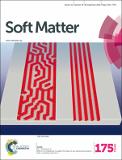Por favor, use este identificador para citar o enlazar a este item:
http://hdl.handle.net/10261/153903COMPARTIR / EXPORTAR:
 SHARE SHARE
 CORE
BASE CORE
BASE
|
|
| Visualizar otros formatos: MARC | Dublin Core | RDF | ORE | MODS | METS | DIDL | DATACITE | |

| Campo DC | Valor | Lengua/Idioma |
|---|---|---|
| dc.contributor.author | Almarza, Noé G. | - |
| dc.contributor.author | Pekalski, J. | - |
| dc.contributor.author | Ciach, A. | - |
| dc.date.accessioned | 2017-08-07T10:07:58Z | - |
| dc.date.available | 2017-08-07T10:07:58Z | - |
| dc.date.issued | 2016 | - |
| dc.identifier | doi: 10.1039/c6sm01400c | - |
| dc.identifier | issn: 1744-6848 | - |
| dc.identifier.citation | Soft Matter 12: 7551- 7563 (2016) | - |
| dc.identifier.uri | http://hdl.handle.net/10261/153903 | - |
| dc.description.abstract | Template-assisted pattern formation in monolayers of particles with competing short-range attraction and long-range repulsion interactions (SALR) is studied by Monte Carlo simulations in a simple generic model [N. G. Almarza et al., J. Chem. Phys., 2014, 140, 164708]. We focus on densities corresponding to formation of parallel stripes of particles and on monolayers laterally confined between straight parallel walls. We analyze both the morphology of the developed structures and the thermodynamic functions for broad ranges of temperature T and the separation L between the walls. At low temperature stripes parallel to the boundaries appear, with some corrugation when the distance between the walls does not match the bulk periodicity of the striped structure. The stripes integrity, however, is rarely broken for any L. This structural order is lost at T = T(L) depending on L according to a Kelvin-like equation. Above the Kelvin temperature T(L) many topological defects such as breaking or branching of the stripes appear, but a certain anisotropy in the orientation of the stripes persists. Finally, at high temperature and away from the walls, the system behaves as an isotropic fluid of elongated clusters of various lengths and with various numbers of branches. For L optimal for the stripe pattern the heat capacity as a function of temperature takes the maximum at T = T(L). | - |
| dc.publisher | Royal Society of Chemistry (UK) | - |
| dc.relation | info:eu-repo/grantAgreement/MINECO/Plan Estatal de Investigación Científica y Técnica y de Innovación 2013-2016/FIS2013-47350-C5-4-R | - |
| dc.relation.isversionof | Publisher's version | - |
| dc.rights | openAccess | - |
| dc.title | Effects of confinement on pattern formation in two dimensional systems with competing interactions | - |
| dc.type | artículo | - |
| dc.identifier.doi | 10.1039/c6sm01400c | - |
| dc.date.updated | 2017-08-07T10:07:58Z | - |
| dc.description.version | Peer Reviewed | - |
| dc.language.rfc3066 | eng | - |
| dc.contributor.funder | Ministerio de Economía y Competitividad (España) | - |
| dc.relation.csic | Sí | - |
| dc.identifier.funder | http://dx.doi.org/10.13039/501100003329 | es_ES |
| dc.type.coar | http://purl.org/coar/resource_type/c_6501 | es_ES |
| item.cerifentitytype | Publications | - |
| item.openairecristype | http://purl.org/coar/resource_type/c_18cf | - |
| item.grantfulltext | open | - |
| item.openairetype | artículo | - |
| item.fulltext | With Fulltext | - |
| Aparece en las colecciones: | (IQF) Artículos | |
Ficheros en este ítem:
| Fichero | Descripción | Tamaño | Formato | |
|---|---|---|---|---|
| SoftMatt2016_12_26_7425.pdf | 10,3 MB | Adobe PDF |  Visualizar/Abrir |
CORE Recommender
SCOPUSTM
Citations
19
checked on 22-abr-2024
WEB OF SCIENCETM
Citations
20
checked on 21-feb-2024
Page view(s)
180
checked on 24-abr-2024
Download(s)
209
checked on 24-abr-2024
Google ScholarTM
Check
Altmetric
Altmetric
NOTA: Los ítems de Digital.CSIC están protegidos por copyright, con todos los derechos reservados, a menos que se indique lo contrario.
